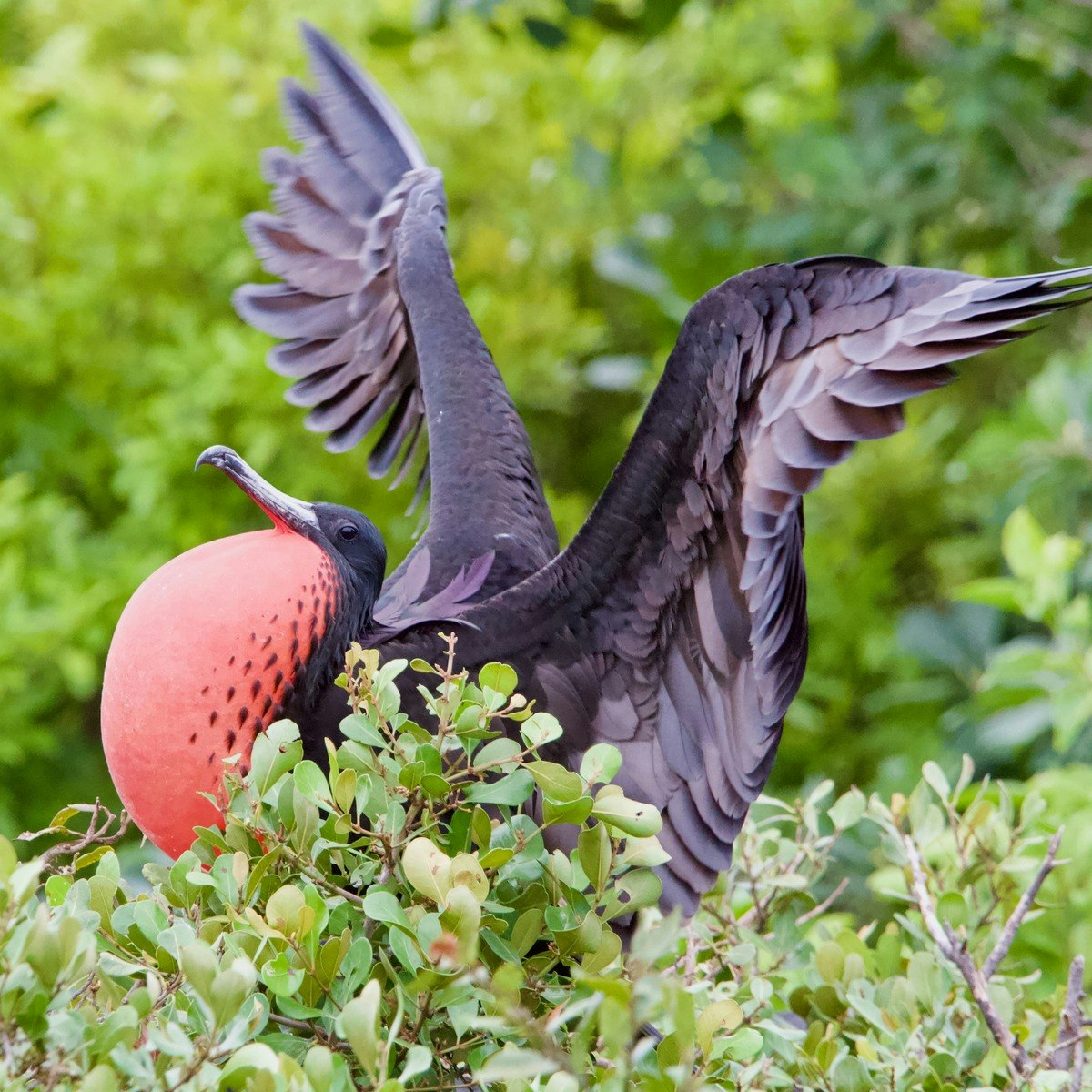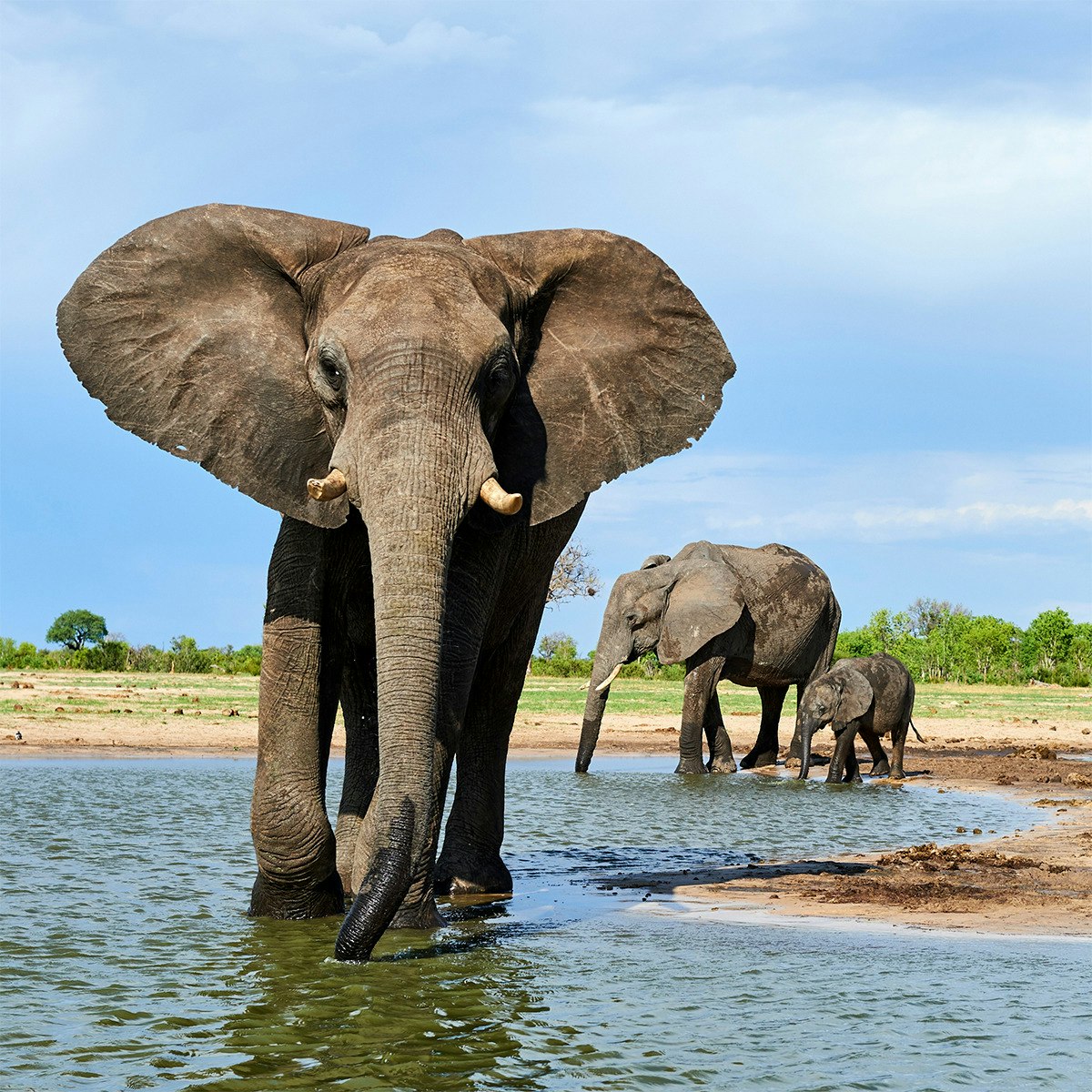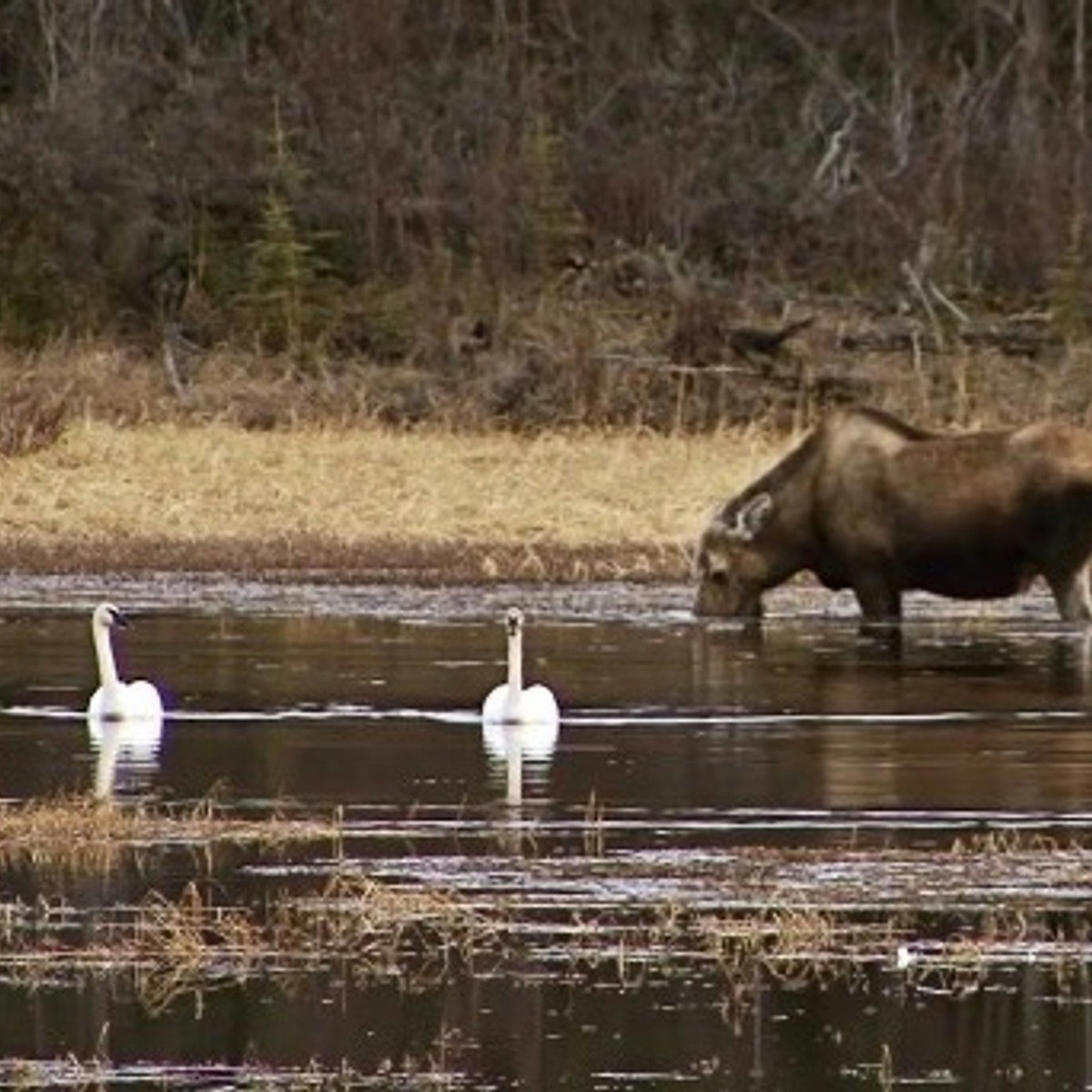Biodiversity
Understanding Biodiversity: Exploring the Variety of Life on Earth
Biodiversity, in simple terms, refers to the variety of life on Earth at all its levels, from genes to ecosystems, and the ecological and evolutionary processes that sustain it. It encompasses the vast array of species we see, the genetic differences within those species, and the variety of ecosystems—like deserts, rainforests, and coral reefs—that host life. Understanding biodiversity is crucial because it underpins the health of our planet and has direct impacts on human well-being.
Exploring biodiversity can be a deeply engaging pursuit. It offers the chance to understand the intricate connections that link organisms together and to their environments. For many, the appeal lies in fieldwork, studying organisms in their natural habitats, or in the lab, analyzing genetic data to uncover evolutionary histories. Furthermore, the field provides opportunities to contribute to critical conservation efforts, working to protect species and habitats facing unprecedented threats, making a tangible difference in the world.
Introduction to Biodiversity
This section provides a foundational understanding of what biodiversity encompasses, its different facets, and how the concept itself has developed over time.
Defining the Tapestry of Life
Biodiversity, a contraction of "biological diversity," describes the full spectrum of life's variation. It's not just about the number of different species, but also the genetic variation existing within each species and the variety of ecosystems they form. Think of it as the complete library of life, containing unique volumes (species), different editions of those volumes (genetic diversity), and various library wings housing specialized collections (ecosystems).
Why is this variety important? Each component plays a role. Genetic diversity allows species to adapt to changing conditions. Species diversity provides a range of functions within an ecosystem. Ecosystem diversity offers different habitats and supports distinct communities of life. The interactions between these levels create resilient and productive natural systems.
This richness didn't appear overnight. It's the result of billions of years of evolution, shaped by geological events, climate shifts, and the constant interplay between organisms. Studying biodiversity means delving into this deep history and the ongoing processes that continue to shape life on Earth.
The Different Scales of Diversity
Biodiversity exists at three main recognized levels. The most fundamental is genetic diversity, which refers to the variety of genes within a single species. This includes variations between distinct populations of a species (like different breeds of dogs) and the variation within a single population (like the different blood types in humans). High genetic diversity provides the raw material for adaptation and evolution.
Species diversity is the level most people think of when they hear "biodiversity." It refers to the variety of different species within a specific habitat or region. Counting the number of bird species in a forest or fish species on a coral reef are examples of measuring species diversity. This level considers not only the number of species (richness) but also their relative abundance (evenness).
Finally, ecosystem diversity deals with the variety of ecosystems in a given place. An ecosystem is a community of living organisms interacting with their physical environment. Examples include forests, wetlands, grasslands, deserts, and marine environments like coral reefs and deep-sea vents. Each ecosystem provides unique conditions supporting specific groups of species and performing distinct ecological functions.
To explain simply: Imagine a single type of tree (like an oak). The differences in acorns, leaf shape, or disease resistance among individual oak trees represent genetic diversity. All the different types of trees, shrubs, insects, birds, and mammals living in a forest represent species diversity. The existence of different types of environments like forests, lakes, and meadows within a larger landscape represents ecosystem diversity.
A Brief History of the Concept
While humans have long observed the variety of life, the formal concept of "biological diversity" gained prominence relatively recently. Naturalists in the 18th and 19th centuries, like Carl Linnaeus and Charles Darwin, laid the groundwork by classifying species and exploring the mechanisms of evolution that generate diversity. However, the term "biological diversity" itself was first used in the early 1980s by conservation scientists like Thomas Lovejoy.
The term "biodiversity" was coined later, in 1985, and popularized by biologist E.O. Wilson through publications and the landmark 1986 National Forum on BioDiversity. This coincided with growing scientific and public awareness of accelerating extinction rates and habitat loss. The concept shifted from a purely scientific descriptor to a term laden with value, emphasizing the urgent need for conservation.
International recognition culminated in the 1992 Earth Summit in Rio de Janeiro, which led to the Convention on Biological Diversity (CBD), an international treaty committing nations to conserving biodiversity, using its components sustainably, and sharing the benefits arising from genetic resources fairly. Since then, biodiversity has become a central theme in environmental science, policy, and public discourse.
These introductory courses can help build a solid foundation in the core concepts of biology and ecology that underpin biodiversity.
For a foundational text from a key figure in the field, consider this classic work.
Global Biodiversity Hotspots
Not all areas on Earth harbor the same amount of biodiversity. Certain regions, known as biodiversity hotspots, are exceptionally rich in endemic species (species found nowhere else) and are also under significant threat from human activities. Identifying these areas helps prioritize conservation efforts where they can potentially protect the largest number of unique species.
The concept was first developed by Norman Myers in 1988 and later refined by Conservation International. To qualify as a hotspot, a region must contain at least 1,500 species of vascular plants as endemics (>0.5% of the world's total) and have lost at least 70% of its original natural vegetation. Currently, 36 regions worldwide meet these criteria.
Examples of biodiversity hotspots include the Atlantic Forest of Brazil, the Cape Floristic Region in South Africa, the Mediterranean Basin, the Mountains of Southwest China, and the Tropical Andes. These areas, while covering only about 2.5% of Earth's land surface, are estimated to contain over half of the world's plant species and nearly 43% of bird, mammal, reptile, and amphibian species as endemics. Focusing conservation resources on these areas is a strategic approach to stemming global biodiversity loss.
Understanding specific ecosystems, like the Amazon, can provide insight into the richness and threats within major biodiversity areas.
The Importance of Biodiversity
Biodiversity is far more than just an interesting collection of plants and animals; it is fundamental to the functioning of ecosystems and provides essential benefits to humanity.
Essential Ecosystem Services
Ecosystem services are the multitude of benefits that nature provides to people. Biodiversity is the engine that drives many of these services. For instance, a diversity of plant species supports a variety of pollinators (bees, butterflies, birds), which are essential for reproducing many crops that feed us. Diverse forests and wetlands act as natural water filters, purifying water sources, and regulating water flow, reducing flood risks.
Soil biodiversity, including microbes, fungi, and invertebrates, is critical for nutrient cycling and decomposition, creating fertile soils necessary for agriculture. Coastal ecosystems like mangroves and coral reefs, rich in species, protect shorelines from storm surges and erosion. Even processes like climate regulation are influenced by biodiversity; forests and oceans absorb vast amounts of carbon dioxide, mitigating climate change.
When biodiversity declines, these services can falter. Loss of pollinators threatens food security. Degradation of forests and wetlands compromises water quality and increases vulnerability to natural disasters. The intricate web of life supports these functions, and its erosion weakens the natural systems we depend upon.
These courses explore the connections between ecosystems, human well-being, and global challenges.
Cultural, Aesthetic, and Ethical Value
Beyond tangible services, biodiversity holds significant cultural and aesthetic value for societies worldwide. Nature inspires art, music, literature, and spirituality. Many cultures have deep connections to specific species or landscapes, which are integral to their identity and traditions. Think of national symbols like the bald eagle in the United States or the spiritual significance of certain animals and plants in indigenous cultures.
The sheer beauty and wonder of the natural world provide recreational opportunities, promote mental well-being, and enrich human experience. Activities like birdwatching, hiking, gardening, and visiting natural parks are enjoyed by millions and depend on the presence of diverse life forms and healthy ecosystems.
Furthermore, there is a growing ethical argument for biodiversity conservation. Many believe that other species have an intrinsic right to exist, independent of their usefulness to humans. This perspective suggests a moral responsibility to act as stewards of the planet and protect the rich biological heritage we share it with. Losing species to extinction is seen not just as an ecological or economic loss, but an ethical failure.
Economic Impacts of Biodiversity Loss
The loss of biodiversity carries substantial economic costs, though they are often hidden or underestimated. Declining fisheries due to overexploitation and habitat degradation impact coastal economies and food supplies. Reduced pollination services can lower crop yields, affecting farmers' livelihoods and food prices. Loss of natural flood control from wetlands and forests can lead to increased damages from extreme weather events.
Biodiversity is also a source of innovation and economic opportunity. Many pharmaceuticals are derived from natural compounds found in plants, animals, and microbes. Genetic resources from wild species are crucial for developing improved crop varieties and livestock breeds. Nature-based tourism is a major industry in many countries, generating revenue and employment, but it depends on maintaining attractive and diverse natural landscapes.
Conversely, investing in biodiversity conservation can generate economic returns through enhanced ecosystem services, sustainable resource management, and new industries like ecotourism and bio-prospecting. Recognizing the economic value of nature is increasingly seen as essential for sustainable development. The World Economic Forum frequently highlights biodiversity loss as a major global risk in its Global Risks Report.
This book delves into the economic dimensions of biodiversity.
Biodiversity's Role in Climate Resilience
Biodiversity plays a critical role in helping both ecosystems and human societies adapt to and mitigate climate change. Diverse ecosystems are generally more resilient to disturbances, including climate impacts like droughts, floods, and temperature extremes. For example, a forest with a variety of tree species may be less susceptible to disease outbreaks exacerbated by climate change than a monoculture plantation.
Healthy, biodiverse ecosystems like forests, peatlands, and mangroves are vital carbon sinks, absorbing CO2 from the atmosphere. Protecting and restoring these ecosystems is a key nature-based solution for climate change mitigation. Conversely, degradation of these systems releases stored carbon, worsening the problem.
Biodiversity also supports climate adaptation. Diverse agricultural systems, including different crop varieties and livestock breeds, can enhance resilience to changing climate conditions. Coastal ecosystems like coral reefs and mangroves provide natural defenses against sea-level rise and storm surges. Integrating biodiversity considerations into climate change strategies enhances the effectiveness and sustainability of both mitigation and adaptation efforts.
Explore the intersection of climate action and biodiversity through these courses.
Threats to Biodiversity
Despite its importance, biodiversity is facing unprecedented threats globally, largely driven by human activities. Understanding these threats is the first step toward effective conservation.
Habitat Destruction and Fragmentation
The conversion of natural habitats—forests, wetlands, grasslands—for agriculture, urban development, infrastructure, and resource extraction is widely considered the single greatest threat to biodiversity. When habitats are destroyed, the species that depend on them lose their homes, food sources, and breeding grounds, leading to population declines and extinctions.
Habitat fragmentation occurs when large, continuous habitats are broken into smaller, isolated patches. This can be caused by roads, dams, or agricultural fields. Fragmentation isolates populations, reducing gene flow and making them more vulnerable to local extinction. It also increases "edge effects," where the conditions at the boundary of a habitat differ from the interior, often favoring generalist or invasive species over habitat specialists.
Deforestation in tropical rainforests, drainage of wetlands, and conversion of native grasslands are prime examples of processes driving habitat loss and fragmentation, impacting countless species adapted to these specific environments.
Impacts of Climate Change
Climate change is increasingly recognized as a major driver of biodiversity loss, interacting with and exacerbating other threats. Rising global temperatures are shifting species' geographic ranges, forcing them to move towards the poles or higher elevations to track suitable climates. Species unable to move fast enough or those whose habitats disappear (like polar bears on melting sea ice) face extinction.
Changes in temperature and precipitation patterns disrupt seasonal events like migration, breeding, and flowering, potentially creating mismatches between species and their food sources or pollinators. Ocean acidification, caused by the absorption of excess atmospheric CO2, harms marine organisms with shells or skeletons, like corals and shellfish, threatening entire reef ecosystems.
Extreme weather events, such as heatwaves, droughts, floods, and intense storms, are becoming more frequent and severe due to climate change. These events can cause mass mortality, destroy habitats, and push already stressed populations closer to collapse. Addressing climate change is therefore intrinsically linked to conserving biodiversity.
Invasive Species and Pollution
Invasive alien species are plants, animals, or other organisms introduced, intentionally or unintentionally, into areas outside their natural range where they establish, spread, and cause harm. They can outcompete native species for resources, prey on them, introduce diseases, or alter habitats. Global trade and travel have greatly increased the rate of species introductions.
Examples include the zebra mussel in North American waterways, which clogs pipes and disrupts food webs, or the cane toad in Australia, which poisons native predators. Invasive species are a leading cause of extinction, particularly on islands where native species often lack defenses against new competitors or predators.
Pollution in various forms also severely impacts biodiversity. Chemical pollution from agriculture (pesticides, herbicides, fertilizers), industry (heavy metals, toxic waste), and urban areas (sewage, road runoff) contaminates soil and water, harming or killing organisms. Plastic pollution chokes and entangles wildlife, particularly in marine environments. Noise and light pollution can also disrupt animal behavior, communication, and navigation.
This course examines plastic pollution and potential solutions.
Overexploitation of Resources
Overexploitation refers to harvesting species from the wild at rates faster than their populations can recover. This includes overfishing, overhunting, and excessive logging or harvesting of plants. Historically, overhunting led to the extinction of species like the passenger pigeon and the dodo. Today, overfishing is a major threat to marine biodiversity, depleting fish stocks and damaging marine ecosystems through destructive fishing practices like bottom trawling.
The illegal wildlife trade, driven by demand for exotic pets, traditional medicine, bushmeat, or luxury goods (like ivory and rhino horn), pushes many species towards extinction. Even seemingly abundant species can be rapidly depleted if harvesting pressure is too high or poorly managed.
Sustainable management practices, based on scientific understanding of population dynamics and ecosystem impacts, are crucial to prevent overexploitation. This often involves setting quotas, establishing protected areas, regulating harvesting methods, and combating illegal trade, requiring both strong governance and community involvement.
Biodiversity Conservation Strategies
Addressing the threats to biodiversity requires a multi-faceted approach, combining scientific knowledge, policy action, community engagement, and technological tools.
Protected Areas and Wildlife Corridors
Establishing protected areas—national parks, nature reserves, wildlife sanctuaries—has been a cornerstone of conservation efforts for over a century. These areas aim to safeguard critical habitats and populations of threatened species by restricting or managing human activities within their boundaries. Effective management is key, involving monitoring, enforcement, and often habitat restoration.
However, protected areas alone are often insufficient, especially if they become isolated "islands" in a landscape dominated by human use. Wildlife corridors, or habitat linkages, are strips of suitable habitat that connect protected areas. These corridors allow animals to move between patches, facilitating gene flow, enabling migration in response to climate change, and increasing the effective size of populations.
Designing effective networks of protected areas and corridors requires careful planning based on ecological principles, considering the needs of target species, landscape connectivity, and future environmental changes. Integrating protected areas into broader landscape management plans is essential for long-term success.
International Agreements and Policies
Biodiversity conservation is a global challenge that requires international cooperation. Several key international agreements provide frameworks for countries to work together. The Convention on Biological Diversity (CBD), mentioned earlier, is the most comprehensive, setting goals for conservation, sustainable use, and benefit-sharing. Its strategic plans, like the Aichi Biodiversity Targets and the post-2020 Global Biodiversity Framework, guide national actions.
CITES (the Convention on International Trade in Endangered Species of Wild Fauna and Flora) regulates the international trade in threatened species to ensure it does not drive them to extinction. The Ramsar Convention focuses on the conservation and wise use of wetlands. Other agreements address migratory species, world heritage sites, and specific regional conservation challenges.
While these agreements provide important platforms, their effectiveness depends on strong national implementation, adequate funding, political will, and mechanisms for monitoring and accountability. Translating international commitments into tangible conservation outcomes on the ground remains a significant challenge.
Understanding sustainable development goals provides context for many international conservation efforts.
Community-Led Conservation Initiatives
Conservation is often more effective and sustainable when local communities are directly involved in and benefit from the management of natural resources. Community-based conservation approaches recognize that local people often possess valuable traditional ecological knowledge and have strong incentives to protect the resources they depend on.
These initiatives can take many forms, including community-managed forests or fisheries, indigenous protected and conserved areas (ICCAs), ecotourism enterprises that share profits locally, and payment for ecosystem services (PES) schemes where communities are compensated for conservation actions.
Empowering local communities, respecting their rights, and ensuring equitable benefit-sharing are crucial elements for success. Top-down conservation approaches that exclude or marginalize local people often face resistance and are less likely to achieve long-term goals. Building trust and partnerships between conservation organizations, governments, and local communities is essential.
Technological Innovations in Conservation
Technology offers powerful new tools for monitoring biodiversity, understanding threats, and implementing conservation actions. Remote sensing technologies, like satellite imagery and drones, allow for large-scale habitat mapping and monitoring of land-use change, deforestation, and fires.
Genetic and genomic techniques, such as DNA barcoding and environmental DNA (eDNA) analysis, enable rapid species identification, detection of elusive or rare species from environmental samples (like water or soil), and assessment of genetic diversity. Acoustic monitoring can be used to track bird or bat populations, while camera traps provide insights into mammal distribution and behavior.
Data analysis tools, including Geographic Information Systems (GIS) and machine learning, help process large datasets, model species distributions, identify conservation priorities, and predict the impacts of climate change or development projects. These technologies enhance the efficiency and effectiveness of conservation planning and management, though access and capacity to use them can be limiting factors in some regions.
This short introduction covers some conservation concepts and ecosystem dynamics.
Careers in Biodiversity
A passion for the natural world and a desire to protect it can translate into a rewarding career. The field of biodiversity conservation and research offers diverse roles requiring a range of skills and expertise.
Exploring Roles: From Fieldwork to Policy
Careers related to biodiversity are varied. Many envision the field Ecologist or Conservation Scientist, conducting research outdoors, monitoring populations, and studying ecosystems. These roles often involve significant fieldwork, data collection, and analysis, contributing directly to our understanding of the natural world.
Conservation Managers work on the ground, implementing strategies to protect species and habitats within protected areas or across broader landscapes. This might involve habitat restoration, managing invasive species, working with local communities, and overseeing park operations.
Environmental Policy Advisors work at local, national, or international levels to develop and advocate for policies that support biodiversity conservation. This requires understanding both ecological principles and political processes, involving research, analysis, negotiation, and communication.
Other roles include Environmental Educators who raise public awareness, Wildlife Veterinarians who care for animal health, GIS Analysts who map and analyze spatial data for conservation planning, and increasingly, roles in Bioinformatics analyzing genetic data.
Essential Skills for Biodiversity Professionals
Success in biodiversity-related careers typically requires a blend of scientific knowledge, practical skills, and interpersonal abilities. A strong foundation in biology, ecology, and environmental science is usually essential.
Fieldwork skills, such as species identification, survey techniques, and data collection methodologies, are crucial for many research and management roles. Data analysis skills, including statistics and increasingly, proficiency with software like R or Python and GIS platforms, are vital for interpreting data and informing decisions.
Strong communication skills, both written and verbal, are necessary for writing reports, grant proposals, scientific papers, and communicating findings to diverse audiences, including policymakers, communities, and the public. Project management, problem-solving, critical thinking, and the ability to work collaboratively in teams are also highly valued.
This course introduces RShiny, a tool for creating interactive web applications useful for visualizing biodiversity data.
Volunteer and Internship Pathways
Gaining practical experience is often critical for breaking into the competitive field of biodiversity conservation. Volunteering or undertaking internships provides invaluable hands-on experience, allows exploration of different types of work, and helps build professional networks.
Opportunities exist with conservation non-profits (NGOs), government agencies (like national park services or wildlife departments), research institutions, museums, and botanical gardens. Tasks might range from assisting with fieldwork and data entry to helping with educational programs or advocacy campaigns.
While some internships are paid, many opportunities, especially entry-level ones, may be unpaid or offer only a small stipend. This can be a barrier for some, but seeking opportunities early, perhaps during university studies, and exploring funding sources can help. Even short-term volunteer experiences can significantly strengthen a resume and demonstrate commitment to the field.
Starting a career transition can feel daunting, but remember that every expert started somewhere. Gaining experience, even in small steps, builds momentum and confidence. Be persistent, network actively, and highlight transferable skills from previous experiences.
Emerging Fields and Future Trends
The field of biodiversity is constantly evolving, with new challenges and opportunities emerging. Restoration ecology, the science and practice of assisting the recovery of degraded ecosystems, is a rapidly growing field driven by the need to reverse habitat loss and enhance ecosystem services.
Bioinformatics and computational biology are becoming increasingly important as genetic sequencing technologies generate vast amounts of data. Professionals skilled in analyzing genomic data are needed to understand evolutionary relationships, assess genetic diversity, and monitor species using eDNA.
The intersection of biodiversity and technology (conservation tech) is expanding, with roles developing in areas like drone operation for monitoring, AI for analyzing camera trap or acoustic data, and developing online platforms for citizen science or conservation planning. Furthermore, understanding the links between biodiversity and human health (One Health approaches) and integrating biodiversity into business and finance (natural capital accounting) are creating new interdisciplinary career paths.
Formal Education Pathways
A strong educational background is typically required for professional roles in biodiversity research and conservation. Several academic paths can lead to a career in this field.
Relevant University Degrees
A bachelor's degree is usually the minimum requirement for entry-level positions. Relevant undergraduate majors include Biology (often with a specialization in ecology, evolution, or conservation), Environmental Science, Ecology, Conservation Biology, Wildlife Biology, Forestry, or Marine Biology. These programs provide foundational knowledge in biological principles, ecological processes, and conservation issues.
Coursework typically includes general biology, chemistry, physics, mathematics (especially statistics), genetics, evolution, ecology, and specialized courses related to plants, animals, or specific ecosystems. Many programs also incorporate fieldwork components and opportunities for undergraduate research.
Choosing a program with faculty whose research aligns with your interests can provide valuable mentorship and research opportunities. Look for universities with strong programs in relevant fields and potentially access to field stations or local natural environments for hands-on learning.
These courses provide university-level introductions to biology and ecology.
Graduate Research Opportunities
For careers in research, academia, or higher-level management and policy roles, a graduate degree (Master's or PhD) is often necessary. Graduate programs allow for specialization in a specific area of biodiversity science or conservation.
Master's programs (e.g., MSc, MEM - Master of Environmental Management) typically take 1-2 years and may be course-based, project-based, or thesis-based. They provide advanced training and specialized skills for professional practice. PhD programs are research-intensive, typically taking 4-6 years, culminating in a dissertation based on original research. A PhD is usually required for academic research positions and senior scientist roles.
Choosing a graduate advisor and research topic is a critical step. Prospective students should research faculty members whose work excites them, contact them to discuss potential opportunities, and carefully review program requirements and funding availability. Graduate research often involves extensive fieldwork, lab work, data analysis, and scientific writing.
These books cover specialized topics often encountered in graduate studies.
Field Schools and Certifications
Beyond formal degrees, field schools and professional certifications can provide specialized practical skills and enhance employability. Field schools offer intensive, hands-on training in specific environments (e.g., tropical rainforest, marine systems) or techniques (e.g., bird banding, plant identification, GIS mapping).
These programs, often run during summer breaks or as short courses, provide immersive learning experiences that complement traditional academic coursework. They are excellent opportunities to gain practical field skills highly valued by employers.
Professional certifications, offered by organizations like the Ecological Society of America or The Wildlife Society, can demonstrate a level of professional competence and adherence to ethical standards. While not always required, certification can be advantageous for certain roles, particularly in consulting or government agencies. Other certifications might focus on specific technical skills like GIS or drone operation.
Interdisciplinary Programs
Addressing biodiversity challenges often requires integrating knowledge from multiple disciplines. Increasingly, universities offer interdisciplinary programs that combine ecological science with fields like economics, policy, law, sociology, data science, or communication.
Programs in Environmental Studies, Environmental Management, Sustainable Development, or Conservation Leadership often adopt an interdisciplinary approach. These programs equip graduates with a broader perspective and the ability to work effectively at the interface of science, policy, and society.
Such programs can be particularly valuable for careers in policy, planning, advocacy, or management roles where understanding social, economic, and political contexts is as important as scientific knowledge. Students gain skills in stakeholder engagement, conflict resolution, and translating scientific information for different audiences.
Consider exploring courses that bridge environmental science with sustainability and societal challenges.
Online and Self-Directed Learning
Formal education isn't the only path to knowledge and skills in biodiversity. Online courses and self-directed learning offer flexible and accessible ways to build expertise, supplement formal training, or facilitate a career change.
Core Topics for Self-Study
For those new to the field or looking to refresh their knowledge, focusing on core concepts is key. Foundational topics include principles of ecology (population, community, ecosystem), evolutionary biology, genetics, and basic taxonomy (understanding how life is classified).
Understanding conservation biology principles, including threats to biodiversity, conservation strategies (like protected area design), and population viability analysis, is crucial. Familiarity with key environmental laws and policies (both national and international) is also beneficial, especially for policy-oriented roles.
Developing practical skills is equally important. Learning Geographic Information Systems (GIS) for spatial analysis and mapping is highly valuable across many roles. Basic statistics and data analysis, potentially using software like R, are essential for interpreting research and monitoring data. OpenCourser offers a wide range of courses across Biology, Environmental Sciences, and Data Science to support self-directed learning paths.
These online courses cover fundamental ecological and biological concepts suitable for self-study.
Project-Based Learning Strategies
Simply consuming information is often less effective than applying it. Project-based learning is an excellent way to solidify understanding and develop practical skills. This could involve undertaking personal projects or contributing to existing initiatives.
Consider participating in citizen science projects, many of which can be done locally or even online (e.g., classifying camera trap images, identifying species from photos). This provides real-world data experience. You could also start a local biodiversity project, like creating a native plant garden, monitoring birds in a local park, or mapping invasive species in your area.
If learning GIS or data analysis, find publicly available datasets (e.g., from government agencies or research repositories) and practice analyzing them, creating maps, or building predictive models. Documenting these projects, perhaps through a personal blog or portfolio, can demonstrate your skills and initiative to potential employers or collaborators.
Micro-credentials and Online Certificates
Online platforms offer numerous courses, certificates, and micro-credentials focused on specific skills relevant to biodiversity careers. These can range from short courses on specific software (like GIS or R) to more comprehensive certificate programs in areas like conservation management, environmental policy, or sustainable development.
While the value placed on specific certificates varies among employers, they can be a good way to demonstrate specialized knowledge or skills, particularly when transitioning from another field. They show initiative and commitment to professional development. Look for programs offered by reputable universities or organizations known in the conservation field.
OpenCourser's Learner's Guide provides resources on how to choose online courses and evaluate the potential benefits of certificates for your career goals. Remember to research the relevance of specific credentials within your target job market.
Combining Online and In-Person Training
A blended approach, combining the flexibility of online learning with the hands-on experience of in-person training, can be highly effective. Online courses are excellent for building foundational knowledge, learning analytical tools, and understanding theoretical concepts at your own pace.
However, many biodiversity careers require practical field skills that are best learned through direct experience. Supplementing online coursework with workshops, field schools, volunteer work, or internships provides opportunities to develop these hands-on skills, network with professionals, and gain a deeper understanding of real-world conservation challenges.
This combination allows you to tailor your learning path, focusing online resources on theoretical and analytical skills while seeking out targeted in-person opportunities for practical training relevant to your specific career interests.
Biodiversity in Global Markets
The connections between biodiversity, ecosystem health, and the global economy are increasingly recognized. Businesses and financial institutions are starting to understand both the risks associated with biodiversity loss and the opportunities in conservation and sustainable practices.
Natural Capital Accounting
Natural capital refers to the world's stock of natural assets, including geology, soil, air, water, and all living things. Ecosystem services flow from this capital. Natural capital accounting aims to measure the stocks of natural assets and the flows of services they provide, integrating this information into economic decision-making alongside traditional financial accounting.
By assigning value (not necessarily monetary) to ecosystem services like pollination, water purification, and carbon sequestration, businesses and governments can better understand their dependencies and impacts on nature. This can inform risk management, investment decisions, and policy development, leading to more sustainable practices that recognize the economic importance of maintaining healthy ecosystems.
Frameworks like the System of Environmental-Economic Accounting (SEEA), adopted by the United Nations, provide standards for integrating environmental data into national accounts. Companies are also increasingly adopting natural capital approaches in their sustainability reporting and strategic planning.
This course introduces the Natural Capital Project approach.
Biodiversity-Linked Financial Risks
The financial sector is becoming more aware that biodiversity loss poses significant risks to investments and economic stability. These risks can be physical (e.g., supply chain disruptions due to pollinator decline or fishery collapse), transitional (e.g., policy changes restricting resource access or imposing pollution taxes), or reputational (e.g., consumer backlash against companies linked to deforestation).
Sectors heavily dependent on ecosystem services, such as agriculture, forestry, fisheries, tourism, and pharmaceuticals, face direct risks. However, impacts can ripple through the entire economy via supply chains and financial markets. Financial institutions are developing tools and frameworks, like the Taskforce on Nature-related Financial Disclosures (TNFD), to help companies and investors assess and report on nature-related risks and dependencies.
Understanding these risks encourages investment in companies with sustainable practices and can drive capital away from activities harmful to biodiversity. Integrating biodiversity considerations into financial analysis and investment strategies is an emerging area of expertise.
Sustainable Supply Chain Management
Many businesses rely on global supply chains that can have significant impacts on biodiversity, often far removed from the final consumer. Agricultural commodities (like palm oil, soy, beef, cocoa), timber, minerals, and seafood are frequently linked to deforestation, habitat degradation, overexploitation, and pollution in biodiversity-rich regions.
Sustainable supply chain management involves tracing products back to their source, assessing the environmental and social impacts at each stage, and implementing practices to minimize harm. This can include sourcing certified sustainable commodities (e.g., FSC-certified timber, MSC-certified seafood), working with suppliers to improve practices, investing in landscape-level conservation initiatives, and increasing transparency.
Consumer awareness and pressure from NGOs and investors are driving companies to adopt more sustainable sourcing policies. Technologies like blockchain are also being explored to improve traceability and verify sustainability claims within complex supply chains.
These courses touch upon sustainability transitions relevant to supply chains and corporate responsibility.
Investments in Conservation Technology
Technological innovation is not only aiding conservation practice but also creating new investment opportunities. "Conservation tech" encompasses a range of technologies designed to monitor, protect, and restore biodiversity and ecosystems.
This includes advancements in remote sensing (satellite, drone), environmental DNA (eDNA), acoustic monitoring, camera trapping, AI for data analysis, bio-logging (animal tracking devices), and platforms for citizen science and conservation management. Start-ups and established companies are developing and deploying these technologies.
Investment in conservation tech can come from venture capital, impact investors, philanthropic foundations, and government grants. These investments aim to scale up solutions that make conservation more effective, efficient, and data-driven, potentially generating both environmental and financial returns. This represents a growing intersection of technology, finance, and conservation.
Frequently Asked Questions (Career Focus)
Exploring a career related to biodiversity often raises practical questions. Here are answers to some common queries from job seekers and those considering a career transition.
Can I transition into biodiversity careers from unrelated fields?
Yes, transitioning into biodiversity careers from other fields is possible, though it often requires planning and effort. Identify your transferable skills – project management, data analysis, communication, fundraising, technical expertise – and highlight how they apply to conservation roles. Gaining relevant knowledge through online courses, volunteering, or targeted workshops is crucial.
Networking is key; connect with people working in the field through professional organizations, conferences, or informational interviews. Be prepared to potentially start in an entry-level or volunteer position to gain specific experience. Tailor your resume and cover letter carefully for each application, emphasizing your passion for conservation and relevant skills, even if acquired in a different context. Patience and persistence are important, as the field can be competitive.
Remember, diverse backgrounds can bring valuable perspectives. Your unique experience might be an asset, especially in interdisciplinary roles involving communication, community engagement, or technology.
Is advanced math or statistics required for most roles?
The level of mathematical and statistical expertise required varies significantly depending on the specific role. Research-intensive positions, particularly in quantitative ecology, population modeling, or bioinformatics, often require advanced statistical skills and proficiency with statistical software like R or Python. A solid understanding of experimental design and statistical inference is crucial for these roles.
However, many other roles in conservation management, education, policy, or communication require less advanced quantitative skills. A foundational understanding of basic statistics for interpreting data and reports is generally beneficial for most professionals in the field. Roles focused on GIS may require spatial statistics knowledge.
If a role you are interested in requires strong quantitative skills that you lack, consider taking targeted courses (online or in-person) to build proficiency. Don't let a perceived lack of math skills deter you from exploring the field entirely, as many roles prioritize other skills like communication, fieldwork, or community engagement.
How competitive are government conservation jobs?
Government jobs in conservation (e.g., with national park services, wildlife agencies, environmental protection agencies) are often highly sought after and can be quite competitive. These positions often offer stability, good benefits, and the opportunity to contribute to large-scale conservation efforts.
Competition levels vary depending on the agency, location, and specific role. Entry-level positions, technician roles, and seasonal jobs may have many applicants. Higher-level positions requiring advanced degrees or specialized experience are also competitive but draw from a smaller pool of qualified candidates.
Applying for government jobs typically involves navigating specific application procedures (like USAJOBS in the U.S.). Having relevant education, practical experience (often gained through internships or volunteer work with the agencies themselves), specific technical skills (like GIS or specialized survey techniques), and sometimes veteran status can improve competitiveness. Persistence and tailoring applications carefully to meet the stated requirements are essential.
Do biodiversity careers typically involve international travel?
The amount of travel involved varies greatly. Some roles, particularly in research focusing on specific ecosystems (like tropical forests or coral reefs), working for international NGOs, or participating in global policy processes, can involve significant international travel. Field biologists studying species in remote locations may spend extended periods abroad.
However, many biodiversity careers involve little to no international travel. Positions focused on local or regional conservation issues, working for state or local government agencies, land trusts, nature centers, or conducting lab-based research might primarily involve domestic travel or be based largely in one location.
If international work is a goal, look for organizations with a global scope or research projects based overseas. If you prefer to stay closer to home, numerous opportunities exist focusing on domestic conservation challenges. Be sure to clarify travel expectations during the application and interview process.
What soft skills are most valued by employers?
While technical expertise is important, employers in the biodiversity field highly value a range of soft skills. Strong communication skills (both written and verbal) are essential for collaborating with colleagues, writing reports and proposals, presenting findings, and engaging with the public or stakeholders.
Collaboration and teamwork are crucial, as conservation work often involves working with diverse groups of people, including scientists, policymakers, community members, and volunteers. Problem-solving and critical thinking are needed to address complex ecological challenges and adapt conservation strategies.
Adaptability and resilience are important, especially for fieldwork, which can involve challenging conditions and unexpected setbacks. Passion and dedication for conservation are often underlying requirements, driving motivation and perseverance. Leadership skills, organizational abilities, and time management are also valued, particularly for management roles.
How does AI/machine learning intersect with biodiversity work?
Artificial intelligence (AI) and machine learning (ML) are increasingly being applied in biodiversity research and conservation, creating new opportunities and requiring new skills. AI/ML algorithms can analyze vast datasets more efficiently than humans.
Applications include automatically identifying species from camera trap images or acoustic recordings, analyzing satellite imagery to monitor habitat change or detect illegal activities like deforestation or poaching, predicting species distributions under climate change scenarios, and analyzing complex genomic data.
While not all biodiversity professionals need to be AI/ML experts, familiarity with these tools and their potential applications is becoming advantageous. Roles specifically focused on conservation technology or computational ecology may require skills in data science, programming (like Python), and machine learning techniques. This represents an exciting and rapidly evolving area within the broader field.
The study and conservation of biodiversity offer pathways filled with intellectual stimulation and the potential to make a meaningful contribution to the planet's health. Whether through formal education, self-directed online learning, or hands-on experience, numerous avenues exist to engage with this vital field. Exploring resources like those available on OpenCourser can help you map your journey into the fascinating world of biodiversity.


















